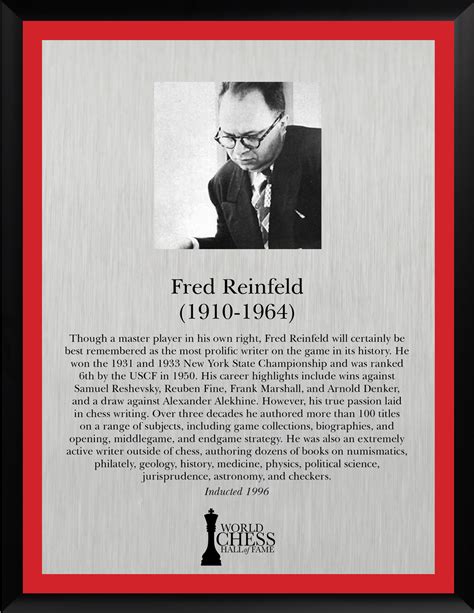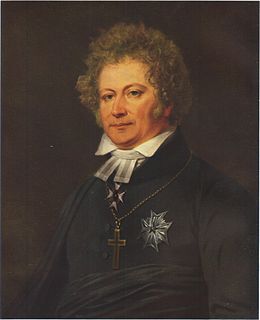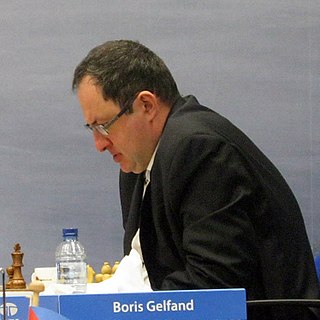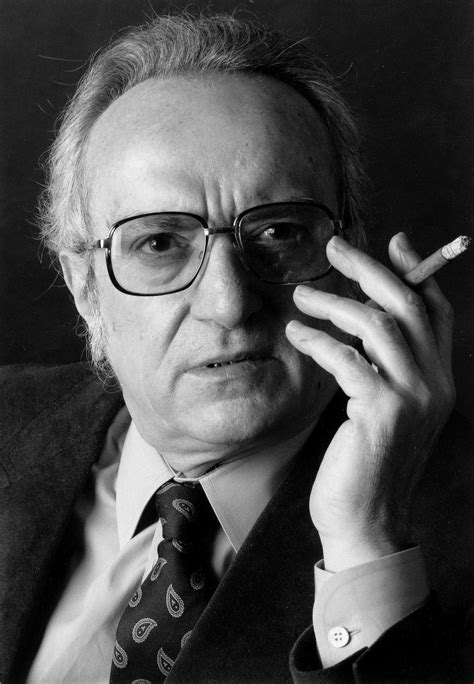A Quote by Garry Kasparov
Capablanca possessed an amazing ability to quickly see into a position and intuitively grasp its main features. His style, one of the purest, most crystal-clear in the entire history of chess, astonishes one with his logic.
Related Quotes
But the thing that was great about Capablanca was that he really spoke his mind, he said what he believed was true, he said what he felt. He [Capablanca] wanted to change the rules [of chess] already, back in the twenties, because he said chess was getting played out. He was right. Now chess is completely dead. It is all just memorisation and prearrangement. It's a terrible game now. Very uncreative.
One interesting indication of Capablanca's greatness is that to non-chess players his name was better known than the names of all other chess masters together! This was due partly to his engaging personality and distinguished appearance: he was one of those exceptional people who at once stand out in a crowd.
Many an expert says that there is a certain affinity between (Capablanca's style) and that of the world master, Lasker. There may be some truth in it. Lasker's style is clear water, but with a drop of poison which is clouding it. Capablanca's style is perhaps still clearer, but it lacks that drop of poison.
For my victory over Capablanca I am indebted primarily to my superiority in the field of psychology. Capablanca played, relying almost exclusively on his rich intuitive talent. But for the chess struggle nowadays one needs a subtle knowledge of human nature, an understanding of the opponent's psychology.
The difference between prose logic and poetic thought is simple. The logician uses words as a builder uses bricks, for the unemotional deadness of his academic prose; and is always coining newer, deader words with a natural preference for Greek formations. The poet avoids the entire vocabulary of logic unless for satiric purposes, and treats words as living creatures with a preference for those with long emotional histories dating from mediaeval times. Poetry at its purest is, indeed, a defiance of logic.
Srinivasa Ramanujan was the strangest man in all of mathematics, probably in the entire history of science. He has been compared to a bursting supernova, illuminating the darkest, most profound corners of mathematics, before being tragically struck down by tuberculosis at the age of 33, like Riemann before him. Working in total isolation from the main currents of his field, he was able to rederive 100 years' worth of Western mathematics on his own. The tragedy of his life is that much of his work was wasted rediscovering known mathematics.
I know Donald Trump quite well. We've never shared values, he and I. But I respected his ability to turn it around. So I respect somebody who can turn things around and be successful. I think the president's communication style is the most difficult thing because he actually does care, people who know him know he cares. But his style of communication, his combative approach, the elements of ego that are obviously there in all of us but seem to be more easy to see in the president sometimes than other people, get in the way of his capacity to lead, unfortunately.
See with what entire freedom the whaleman takes his handful of lamps-often but old bottles and vials, though. ... He burns, too, the purest of oil. ... It is sweet as early grass butter in April. He goes and hunts for his oil, so as to be sure of its freshness and genuineness, even as the traveler on the prairie hunts up his own supper of game.
The Reverend Douglas Wilson may not be a professional historian, as his detractors say, but he has a strong grasp of the essentials of the history of slavery and its relation to Christian doctrine. Indeed, sad to say, his grasp is a great deal stronger than that of most professors of American history, whose distortions and trivializations disgrace our college classrooms. And the Reverend Mr. Wilson is a fighter, especially effective in defense of Christianity against those who try to turn Jesus' way of salvation into pseudo-moralistic drivel.





























